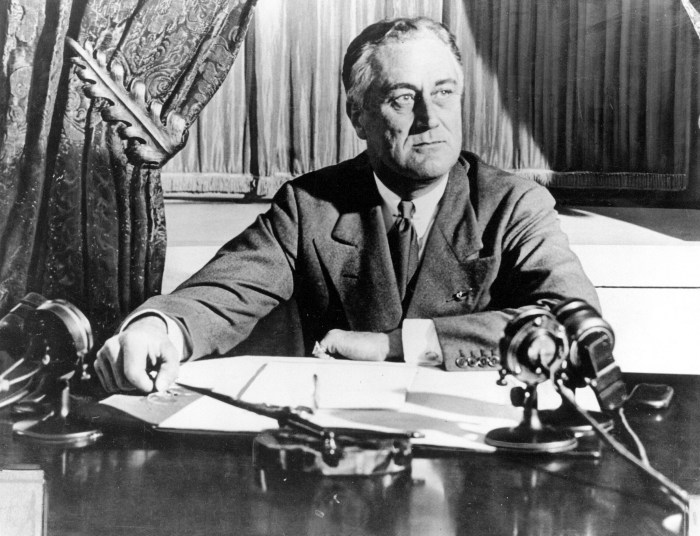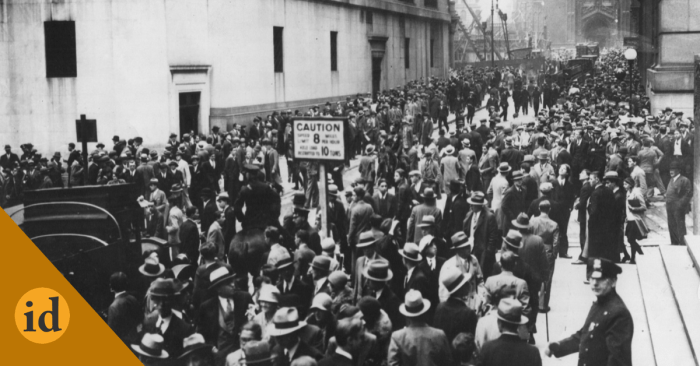In retrospect bankers concluded that the new deal sets the stage for this enthralling narrative, offering readers a glimpse into a story that is rich in detail and brimming with originality from the outset. The New Deal, a comprehensive legislative program enacted by President Franklin D.
Roosevelt in response to the Great Depression, had a profound impact on the banking industry. This article examines the specific measures taken by the New Deal to address the banking crisis, the immediate effects of these measures on the banking industry, and the key findings and conclusions of bankers’ subsequent analysis of the New Deal’s impact on the banking industry.
The content of the second paragraph that provides descriptive and clear information about the topic
The New Deal and the Banking Industry

In retrospect, bankers concluded that the New Deal had a profound impact on the banking industry, both in the short and long term. The measures taken by the Roosevelt administration to address the banking crisis helped to stabilize the financial system and restore confidence in the banking industry.
Historical Context
The Great Depression was a devastating economic crisis that began in the United States in 1929. The stock market crash of 1929 led to a loss of confidence in the banking system, and many banks failed. By 1933, one-quarter of all banks in the United States had failed.
The New Deal was a series of programs and reforms enacted by President Franklin D. Roosevelt in response to the Great Depression. The New Deal’s goals were to provide relief to the unemployed, stimulate economic recovery, and reform the financial system.
Impact of the New Deal on the Banking Industry
The New Deal had a significant impact on the banking industry. One of the most important measures taken by the Roosevelt administration was the creation of the Federal Deposit Insurance Corporation (FDIC). The FDIC insured deposits up to $5,000, which helped to restore confidence in the banking system.
The New Deal also created the Securities and Exchange Commission (SEC) to regulate the securities industry. The SEC was given the authority to investigate and prosecute fraud and other illegal activities in the securities markets.
Bankers’ Retrospective Analysis
Bankers have conducted extensive analysis of the New Deal’s impact on the banking industry. They have concluded that the New Deal’s reforms were largely successful in stabilizing the financial system and restoring confidence in the banking industry.
Bankers have identified several factors that contributed to the success of the New Deal’s banking reforms. These factors include:
- The creation of the FDIC, which insured deposits up to $5,000
- The creation of the SEC, which regulated the securities industry
- The implementation of strict banking regulations
Long-Term Effects of the New Deal on Banking, In retrospect bankers concluded that the new deal
The New Deal’s banking reforms had a lasting impact on the structure and regulation of the banking industry. The FDIC and the SEC continue to play a vital role in protecting the financial system. The banking regulations implemented during the New Deal have also been instrumental in preventing future financial crises.
Contemporary Relevance
The New Deal’s banking reforms are still relevant today. The FDIC and the SEC continue to play a vital role in protecting the financial system. The banking regulations implemented during the New Deal have also been instrumental in preventing future financial crises.
The New Deal’s experience provides valuable lessons for addressing current challenges in the banking industry. For example, the FDIC’s deposit insurance program has been credited with preventing a financial crisis during the 2008 financial crisis.
Commonly Asked Questions: In Retrospect Bankers Concluded That The New Deal
What were the key findings of bankers’ retrospective analysis of the New Deal’s impact on the banking industry?
Bankers concluded that the New Deal’s banking reforms were largely successful in stabilizing the banking system and preventing another financial crisis.
What are some of the lessons that can be learned from the New Deal’s experience for addressing current challenges in the banking industry?
The New Deal’s experience offers valuable lessons for addressing current challenges in the banking industry, such as the importance of strong regulation, the need for government intervention in times of crisis, and the importance of public confidence in the banking system.


